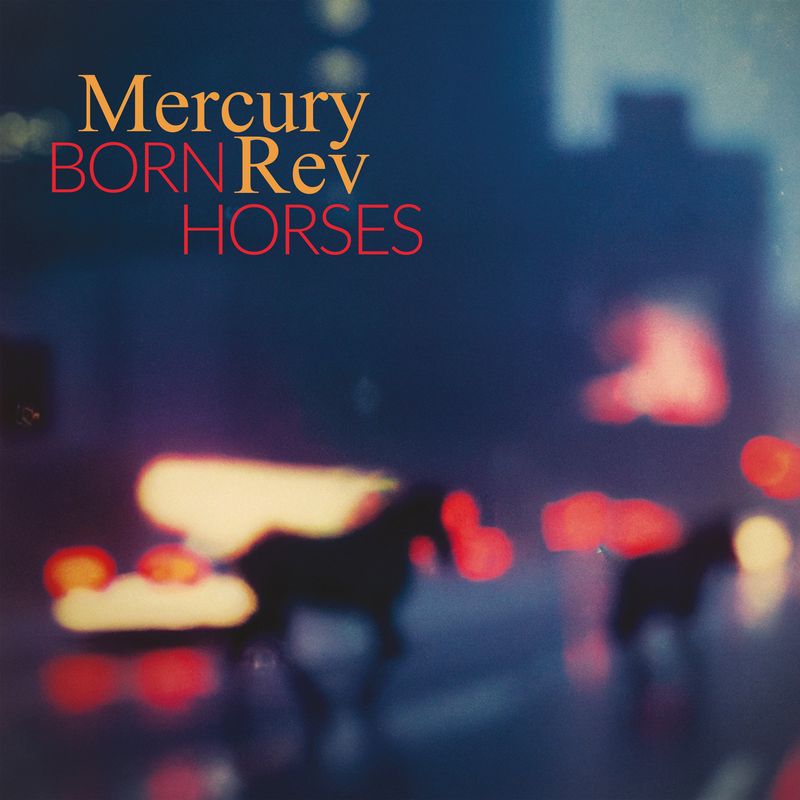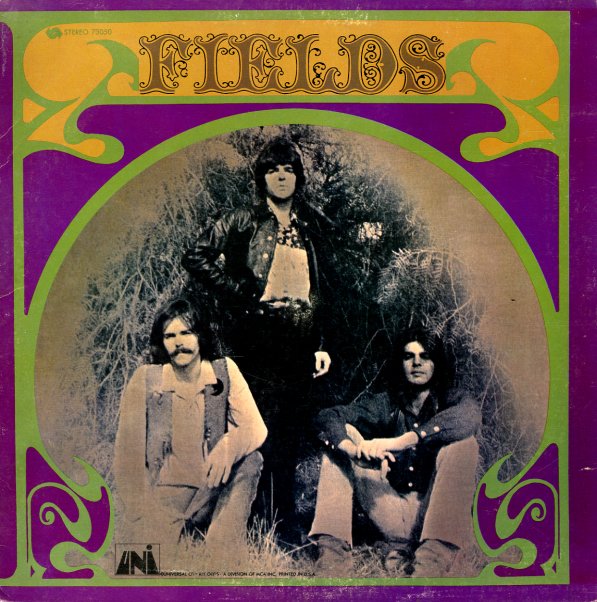Born Horses by Mercury Rev: Album Review
Born Horses by Mercury Rev: Album Review
Mercury Rev’s ninth album Born Horses is a seismic shift from their previous output. Absent from this round are the defining, high-pitched vocals of Jonathan Donahue to be replaced by a huskier tone more associated with a beat poet. Replaced forever? Who knows. As Donahue puts it, “When I opened my voice to sing on this record, this was the bird that sang: a lower, whiskery voice, which surprised me as much as it may others. I don’t know where the bird originated, but it’s there now, and I don’t question it. It’s just the bird that wants to sing.”
That is not to assert that Donahue doesn’t have much to say here. One doesn’t create a layered, spoken word album without a poetic vision to reveal to the
Something so familiar and defining to the sound of Mercury Rev in its absence seems jarring, even though NOTHING is jarring about this album.
universe. Songs of a wandering heart after lost love, the swaying pendulum of mood, dreams of unattainable freedom, and finding meaningful connections between nature and music are some of the subjects addressed on Born Horses.
Jonathan’s singing voice is missed on this record. Something so familiar and defining to the sound of Mercury Rev in its absence seems jarring, even though NOTHING is jarring about this album. Saxophones, horns, and strings replace driving guitar as the main melodic instruments. Softly percussive and buoyant, the songs on Born Horses defy gravity both with floating simplicity and intricately woven textural subtlety.
Sean “Grasshopper” Mackowiak is still Jonathan Donahue’s partner-in-crime in the Mercury Rev universe. Founding member/producer/studio bassist Dave Fridmann parted ways with the band close to a decade ago, advancing his prolific career as an indie rock producer (Flaming Lips, Elf Power, Clap Your Hands Say Yeah). Newer permanent members Jesse Chandler and Marion Genser showcase their harmonic keyboard talents here, fleshing out the moods to give context to the poetry. This album, like their last two, is self-produced and recorded in their own studio in upstate New York with Grasshopper and Jonathan as the core multi-instrumentalist along with a revolving door of bassists, drummers, and multi-instrumentalists. They get by with a little help as it were.
Built on a love for Vangelis’ Blade Runner soundtrack, Miles Davis’ Sketches of Spain, and beat poet jazzers like Chet Baker, the sparkle and musical nuance of Born Horses is an intriguing house built upon that foundation. Waves of soft, atmospheric impulses wash over the album. Most songs are
Loosely constructed, these songs provide you with blurred feelings of a deeper meaningfulness which sharpen into focus like an auditory Monet if you squint your ears just right.
simplistic two or three-chord progressions with velveteen instrumentation enveloping Donahue’s lyrical impressionism. Loosely constructed, these songs provide you with blurred feelings of a deeper meaningfulness which sharpen into focus like an auditory Monet if you squint your ears just right.
The song “Mood Swings” meanders (in a good way), floating on currents of jazzy horn lines and vibraphonic dreaminess. The spoken word lyrics invoke the poignancy of a modernist beat poet. “There’s Always Been A Bird in Me” features a driving drumbeat, giving the song more than just ethereal energy, but the lifeblood of a throbbing heart. It is a singular standout because of its rhythmic contrast with the rest of the album. The only track where Jonathan even approaches melodicism in his voice would be “A Bird of No Address.” The chorus of “Well come on” in different hands (ie. Wayne Coyne of the Flaming Lips) would be an energetic call to the masses. Utilizing this new languorous vocal style, it’s more akin to a subdued Roger Waters in the late Pink Floyd era.
Photo courtesy of the artist
Jonathan Donahue was a guitarist for the Flaming Lips thirty-odd years ago, and their careers have been intertwined from the infancy of Mercury Rev. The bands have certainly influenced each other throughout the years. Shared producer Dave Fridmann steered them both in the direction of falsetto-voiced, noisy indie rock clear through to symphonic pop around the time both Soft Bulletin and All is Dream were released. While the Lips have also gone down a dreamier and more mystical musical path as of late, Wayne Coyne continues his upper register vocal delivery and tighter song construction than any of the pieces on Born Horses. Should it be assumed that much like a barrel-aged whiskey, Jonathan Donahue’s voice has mellowed with time?
It seems that as the band continues to mature, they are expanding their vision while experimenting more with style and songcraft.
Their last album of original music, 2015’s The Light in You, was a musically toned-down version of the band, but filled with more dynamism than Born Horses. The Light in You was followed by 2019’s The Delta Sweete, a reimagined version of Bobbie Gentry’s 1968 southern soul classic featuring a different female vocalist on each track. It seems that as the band continues to mature, they are expanding their vision while experimenting more with style and songcraft. While the future of Mercury Rev has yet to be written, know that this album is a new and unexpected direction for the band.
Born Horses releases September 6th, and the singles “Patterns,” “Ancient Love,” and “A Bird of No Address” have already been released.
Related: The Top 100 Psychedelic Rock Artists of All Time
Gallery
Recent Articles
Vinyl Relics: Fields by Fields
•
February 10, 2026
A Tale of Crescendo ~ Epilogue
•
February 7, 2026

Loading...
Vinyl Relics: Would You Believe with Billy Nicholls
- Farmer John




